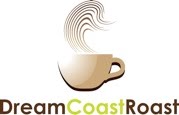First you place your order with the person at the register who then tells another person - the barista what you want. The barista is a person who makes and serves coffee drinks as a profession, hence why he doesn't take your order and ring you up. You also need to speak fluent coffee or the barista won't understand what kind of coffee drink you want. Don't assume that ordering coffee in a coffee cafe is simple. Below is just a partial list of the how many different ways they can alter your cup of coffee:
- Espresso Con Panna: An espresso shot with whipped cream.
- Caffe Americano: Single shot of espresso with 6 to 8 ounces of hot water added.
- Cafe Breva: Cappuccino made with Half & Half instead of whole milk.
- Dry: Espresso with a small amount of foam and no steamed milk.
- Shot in the Dark: An espresso shot in coffee cup, then rest of cup filled with drip coffee.
- Latte: espresso and steamed milk.
Here are a few more terms. These are not really common on the average menu but using them will probably make you feel snobbish and elitist if you're into that sort of thing.
- Frappe: Coffee drink made with ice cream and milk.
- Ristretto: A restricted shot of espresso (called a short pull). During the brewing process, less water is allowed to pass through the coffee grounds. The makes for an especially intense flavor.
- Lungo: An extra long pull. During the brewing process, twice as much water is allowed to pass through the coffee grounds.
- Chairo: Espresso drink made "clear" by adding more milk.
- Caffe Mochaccino: Cappuccino with chocolate syrup.
Ordering "Black, cream & sugar" is probably going to get a strange look from the friendly barista. Ordering a drip coffee drink is not the fashionable thing these days. You should probably pull the non-barista to the side and whisper your order . If they have an ounce of decency they won't share your shame with the rest of the patrons and will be instrumental in helping the barista understand that it is important to treat the coffee challenged as equals.
Once you get your coffee drink, you just can't take a taste and say "Good coffee". One must first comment on the aroma (or bouquet), then the tone or appearance of the coffee drink. After the first taste, one can judge the body or weight consistency of the coffee drink. Next you need to describe how the coffee actually tasted. Was the coffee bitter, briny, buttery, spicy, sweet, stale, or even chocolaty? If all went well in the coffee preparation, and if you chose a good blend of coffee, this particular coffee drink could be considered mellow or full and well balanced.
Me personally? I just go in and order my coffee however I want it, describing it however I want to and just look at them all like "what"? Apparently the only thing coffee cafes want more than everyone using the proper lingo is everyone's money. Just sayin.
